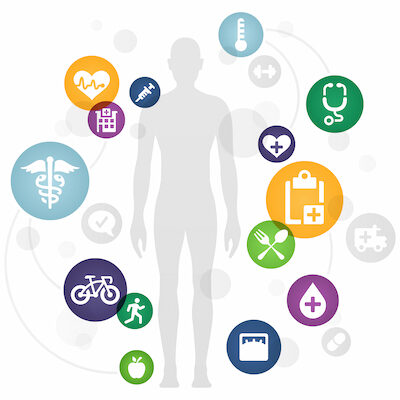Precision Medicine in Clinical Research: Revolutionizing Healthcare
Table of Contents
Introduction
In the ever-evolving landscape of healthcare, precision medicine has emerged as a groundbreaking approach that holds the promise of personalized and more effective treatments. Unlike the traditional one-size-fits-all model, precision medicine tailors medical care to individual patients based on their genetic makeup, lifestyle, and other unique factors. This paradigm shift has not only transformed clinical practice but has also revolutionized clinical research. In this blog, we will delve into the concept of precision medicine in clinical research, exploring its significance, challenges, and the future it holds.
Understanding Precision Medicine
Precision medicine, also known as personalized medicine or individualized medicine, represents a significant departure from the conventional approach to healthcare. Instead of treating patients based solely on their symptoms or broad disease classifications, precision medicine takes into account the genetic, molecular, and environmental factors that make each person unique. By analyzing this wealth of data, healthcare providers and researchers can make more informed decisions about diagnosis, treatment, and prevention strategies.
The Role of Genomics
One of the cornerstones of precision medicine is genomics, the study of an individual’s entire genetic makeup. The Human Genome Project, completed in 2003, marked a significant milestone in this field by mapping out the entire human genome. Since then, advances in DNA sequencing technology have made it increasingly accessible and affordable to sequence an individual’s genome. This wealth of genetic information has opened up new possibilities in clinical research.
In clinical research, genomics plays a pivotal role in several ways:
- Personalized Treatment: Genetic testing can identify specific genetic mutations or variations that may influence a patient’s response to certain medications. This allows for the customization of treatment plans, ensuring that patients receive the most effective and least harmful therapies.
- Disease Risk Assessment: By analyzing an individual’s genetic profile, researchers can assess their risk of developing certain diseases. This information can guide early intervention and preventive measures.
- Targeted Therapies: Genomic information can identify molecular targets within a patient’s tumor, leading to the development of targeted therapies that attack cancer cells while sparing healthy tissue.
- Clinical Trial Recruitment: Researchers can use genomic data to identify potential participants for clinical trials based on their genetic profiles, ensuring that the right patients are enrolled in the right trials.
Challenges in Precision Medicine Research
While precision medicine holds immense promise, it is not without its challenges. Some of the key hurdles faced in precision medicine research include:
- Data Management: Genomic data is vast and complex, requiring sophisticated storage, analysis, and interpretation. Researchers must grapple with the enormous data sets generated by sequencing technologies.
- Ethical Considerations: The use of genetic information raises ethical concerns related to privacy, consent, and potential discrimination. Protecting patients’ genetic data is of paramount importance.
- Access and Equity: Ensuring equitable access to precision medicine is crucial. Disparities in access to genetic testing and cutting-edge treatments can exacerbate existing healthcare inequalities.
- Regulatory Frameworks: Regulatory bodies must adapt to the rapidly evolving field of precision medicine to ensure safety and efficacy. Striking a balance between innovation and patient safety is challenging.
The Future of Precision Medicine in Clinical Research
Despite these challenges, precision medicine continues to advance, and its potential impact on clinical research is undeniable. Here are some exciting developments on the horizon:
- AI and Machine Learning: Artificial intelligence and machine learning algorithms are becoming indispensable tools for analyzing and interpreting complex genomic data. They can identify patterns and correlations that may not be apparent to human researchers.
- Drug Discovery: Precision medicine is revolutionizing drug discovery by enabling the development of targeted therapies. The ability to match specific drugs to the genetic profiles of patients promises to improve treatment outcomes.
- Preventive Medicine: With a deeper understanding of genetic predispositions, precision medicine is shifting towards preventive strategies. Early intervention and lifestyle modifications can reduce disease risk.
- Global Collaboration: International collaboration in sharing genomic data is crucial for accelerating research and ensuring diversity in genetic databases, which is essential for equitable precision medicine.
Conclusion
Precision medicine in clinical research represents a seismic shift in the way we approach healthcare. By harnessing the power of genomics and personalized data, researchers and healthcare providers can offer more precise diagnoses, treatments, and preventive measures. While challenges remain, ongoing advancements in technology and collaboration hold the promise of a future where healthcare is truly tailored to the individual. As precision medicine continues to shape the landscape of clinical research, it brings us one step closer to a world where healthcare is not just personalized but optimized for every patient’s unique needs.
You may be interested in…




